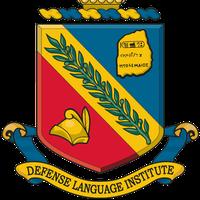História e política das Copas do Mundo
Educadora FM. Copa do Mundo África do Sul 2010.
Depois dos jogos do Uruguai em 1930, a Copa cruzou o Atlântico e foi parar na Europa, onde fincou bandeira por duas edições. A Itália recebeu a competição em 1934, ano em que ganhou o primeiro dos seus 4 títulos mundiais.
A primeira Copa da Itália foi marcada por fatos políticos interessantes. A seleção uruguaia, então campeã mundial, se recusou a participar numa espécie de vingança ao boicote das seleções européias à Copa do Uruguai. É que quatro anos antes, algumas seleções do velho continente não participaram da Copa uruguaia, alegando não poder arcar com a viagem que na época era cara e cansativa. É bom lembrar que o trajeto era feito de navio. Assim foi uma copa praticamente européia.
Das Américas, somente Brasil, Argentina e Estados Unidos foram à Itália. Mas nenhuma dessas seleções passou da primeira fase. Na final, a seleção da casa bateu a Tchecoslováquia por 2x1 e ficou com a taça.
Em 1938, foi a vez da França sediar a Copa. Em represália, a Argentina, que era candidata a país sede, e mais seis seleções americanas retiraram seus times da competição, assim o continente foi representado por Brasil e Cuba. A política entrava de vez no mundo do futebol. A seleção alemã ostentava a suástica nazista como distintivo do uniforme. A Itália vestia preto, cor oficial do fascismo. Era o prenúncio da guerra que estava por vir. No final, deu Itália novamente. Dessa vez, a vitória foi sobre a Hungria por 4x2
Nesse período, a história das Copas, ou melhor, a história do mundo sofreu grandes mudanças. No dia 1 de setembro de 1939 foi declarada a Segunda Guerra Mundial. Nações, que antes só se enfrentavam no campo pela glória desportiva, agora travavam batalhas reais em que a brutalidade das armas transformou países em inimigos.
A Segunda Grande Guerra matou 2% da população mundial. Cerca de 50 milhões de pessoas, a maioria civis. Esse foi o que se pode chamar de triste placar da intolerância. No período em que durou a Segunda Guerra Mundial, de 1939 a 1945, não houve copa do mundo. Mateus Spiler.

